“I was born with / eyes that can never close…”
– Joy Harjo
The Art of Revitalization
Fellowships for Indigenous & Endangered Languages
The 2023 Indigenous Poetics Lab Fellowships are awarded to:
Maura Adela Cruz, Talia Dixon, Sierra Edd, Claudia Iron Hawk, Sabrina Jaszi, Tzintia Montano-Ramirez, Jesús Nazario, Everardo (Ever) Reyes, Måsi Santos, and Pa Vue
ARC has awarded ten $1,000 Indigenous Poetics Lab Fellowships to Berkeley undergraduate & graduate students who use creative writing and other arts as language revitalization in Indigenous and/or endangered languages.
The revitalization of Indigenous and endangered languages is an urgent matter, and the arts are a vital resource in the effort. The aim of this new fellowship program is to provide material and developmental support for language activists working in Indigenous and/or endangered languages to create new work with a focus on language, aesthetics, and form to support revitalization. The 2023 awards are generously supported by a Mellon Leadership Award and Berkeley’s Division of Arts and Humanities. The fellowship period runs through May 2024.
2023 Indigenous Poetics Lab Fellows

Maura Adela Cruz
Maura Adela Cruz (she/her) is an undergraduate student at the University of California, Berkeley pursuing a degree in English with a minor in Creative Writing. She was raised in California’s Central Valley to an Indigenous farmworker community and is of Zapotec and Mixtec descent. Maura’s poetry focuses on Zapotec language revitalization while also examining the circumstances imposed by settler-colonial nation-states like the U.S. and Mexico. Her poetic work seeks to document and preserve the cultural histories and worldviews embedded within her Indigenous Zapotec language.
Research Statement:
Maura’s research is focused on Zapotec Language Revitalization and the documentation of Indigenous farmworker narratives.
Image by Chris Duran.

Talia Dixon
Talia Dixon (she / her) is an enrolled member of the Pauma Band of Luiseños (Payómkawichum) in San Diego County. She grew up in Hemet California and graduated with her B.F.A. in modern dance from the University of Utah in 2021. She is a dancer, artist, and currently a Ph.D. student in Performance Studies on Ohlone land at UC Berkeley.
Research Statement:
Through her creative and academic work, Talia hopes to promote the reclamation of cultural knowledge held within archived recordings of Luiseño songs and language.
Instagram: @taliadixon
Image credit: Kayden Hernandez
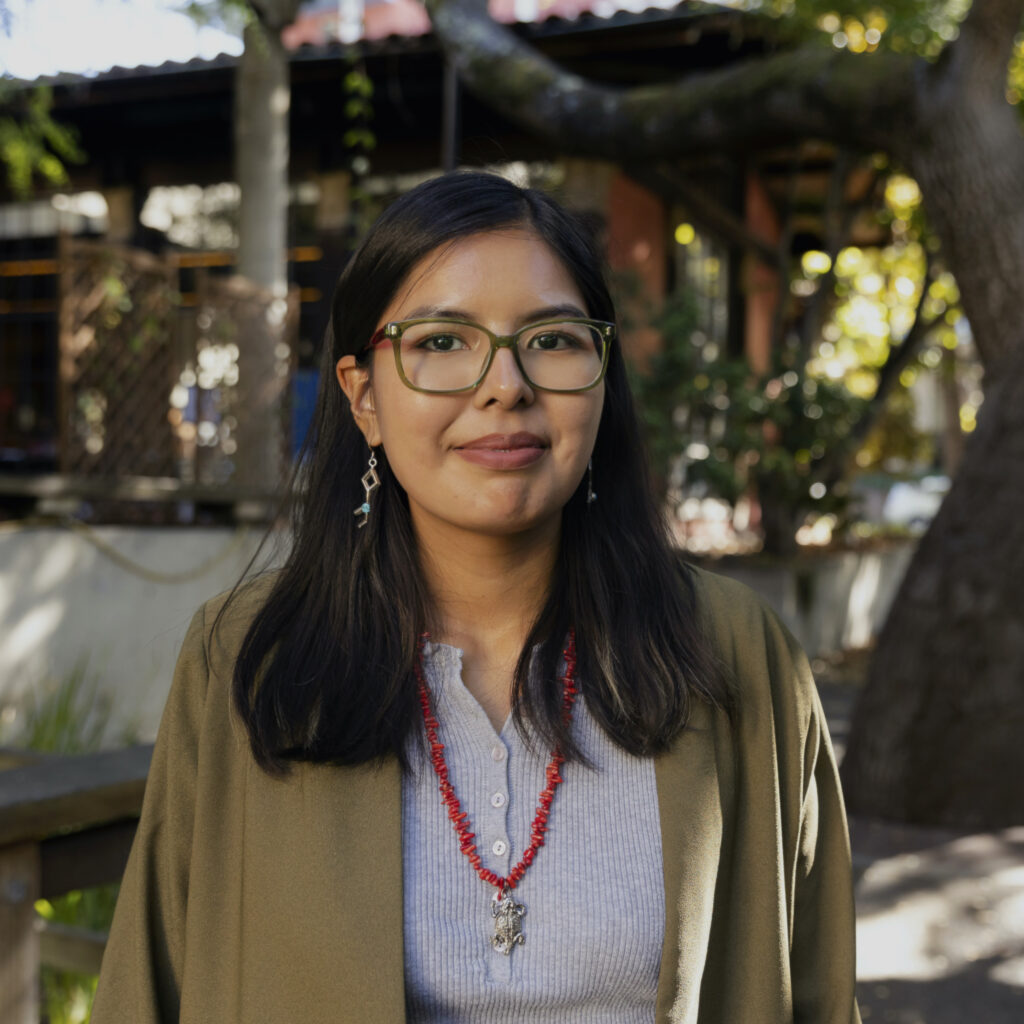
Sierra Edd
Sierra Edd (she / her) is a Diné writer and artist who grew up in Durango, Colorado. She is Tł’ógi, born for the Kinłichii’nii people. She is currently an Ethnic Studies doctoral student and resides in Ohlone Territory. Her research examines the political significance of listening, creating, and connecting through Indigenous music across various U.S. contexts. Recently, she has been collaborating and working on zine projects (“Portals of Indigenous Futurism Zine” and “Indigenous Collective Futures”).
Research statement:
Sierra Edd’s dissertation project addresses various Indigenous music artists and their practices and techniques to ask how musicking relates to Native identity, movement, and belonging across various backgrounds and territories.
Instagram: @sierrabeading
Image courtesy of the fellow.
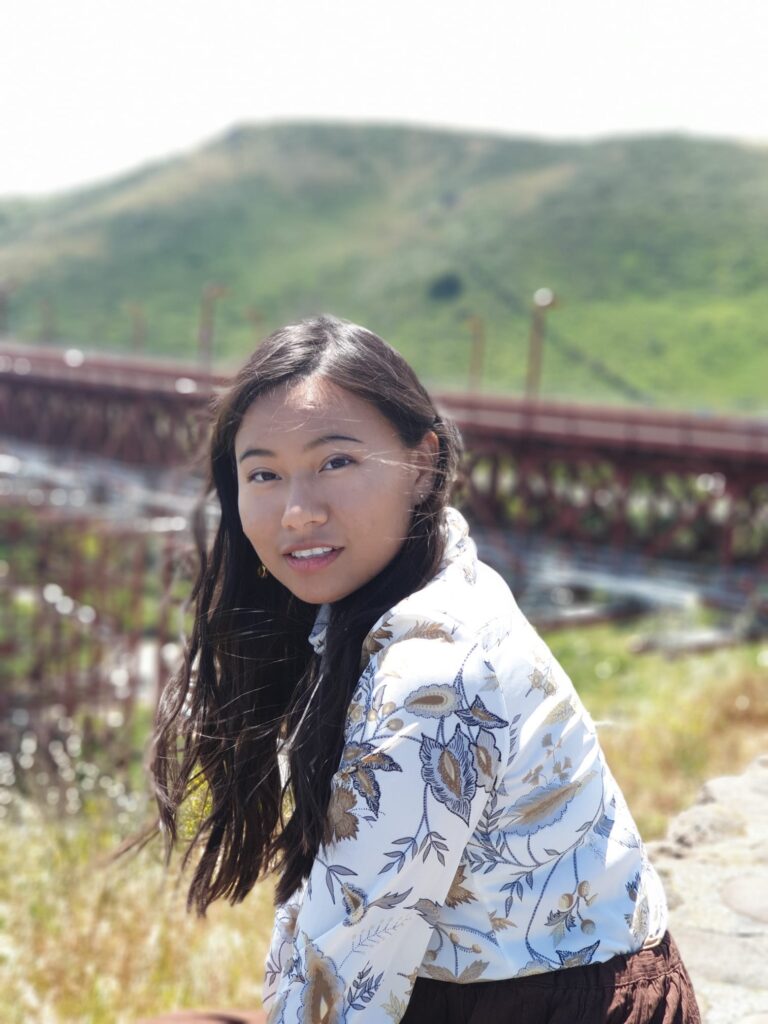
Claudia Iron Hawk
Claudia Iron Hawk / Thaopi Waste Win (she/her) is a D/Lakota linguist from the Cheyenne River Sioux Tribe (CRST) in South Dakota. She has a bachelor’s in Anthropology & Native American and Indigenous studies from UMN and is pursuing a Ph.D. in Linguistics at UC Berkeley. She is an Indigenous language revitalization advocate who speaks and works with her heritage language D/Lakotiya.
Research statement:
Claudia Iron Hawk focuses on language revitalization and acquisition methods for her work in D/Lakotiya within a linguistic lens and community-based framework. Iron Hawk has recently explored Indigenous language reclamation and awareness through creative writing and digital/visual art.
Instagram: @cironh
Image credit: Sylvia Chin
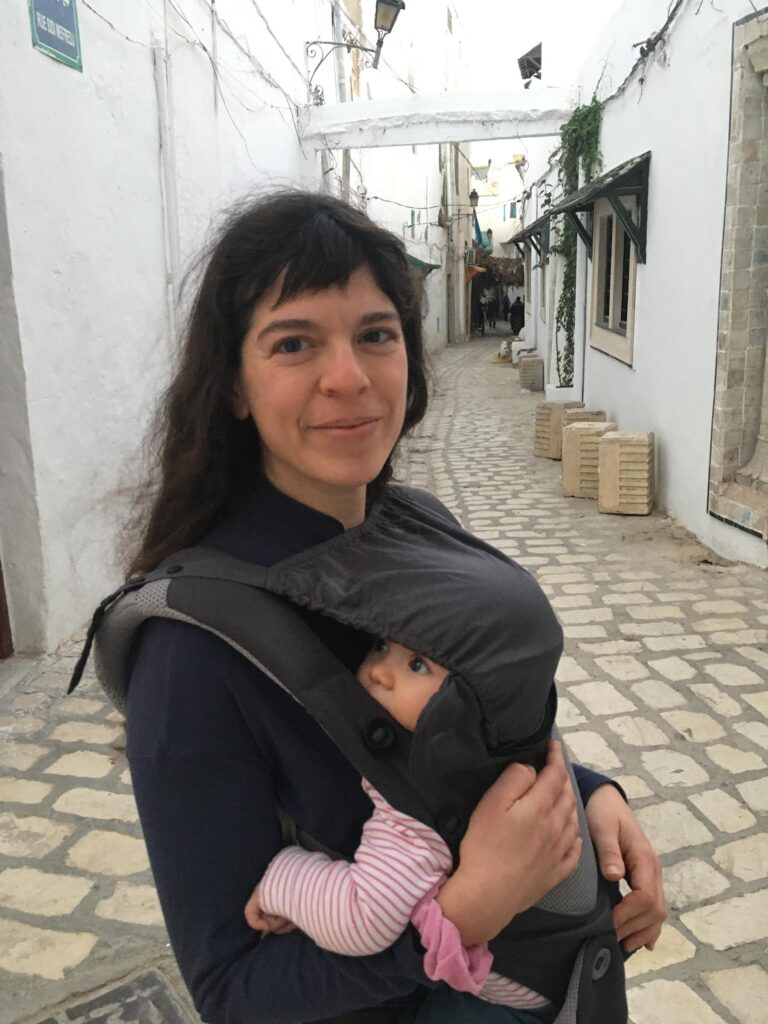
Sabrina Jaszi
Sabrina Jaszi (she / her)
In her work as a translator, editor, and PhD student in UC Berkeley’s Department of Slavic Languages and Literatures, Sabrina brings attention to the indigenous languages of Central Asia. She is a co-founder of Turkoslavia, a translation collective devoted to Turkic and Slavic literature, and a co-editor of Turkoslavia journal.
Research Statement:
Sabrina’s research explores literary translation in Soviet Central Asia, particularly the paths of influence and resistance between Russian and Uzbek literature.
Website: https://www.turkoslavia.com
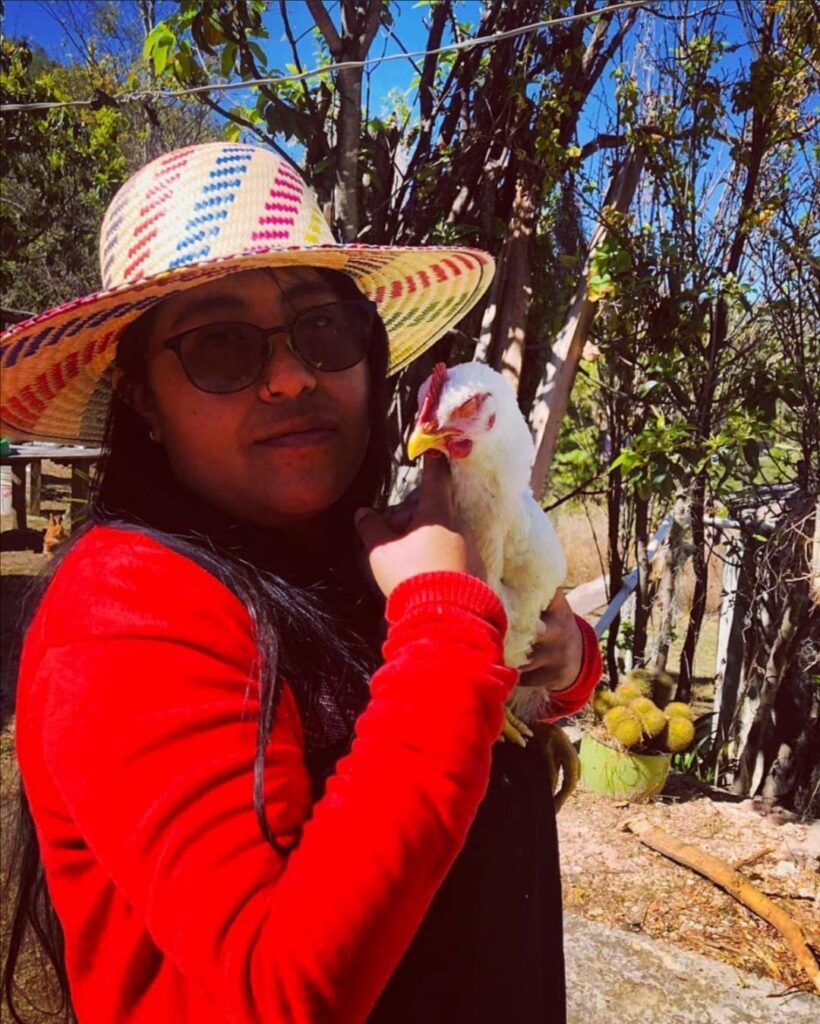
Tzintia Montano-Ramirez
Tzintia Montano-Ramirez (she / her) is Ña’à Davi Chilanga very interested in cultural identities. Her interests focus on language revitalization and reclamation, fieldwork and language documentation of the Mixtec from Southern Puebla, Mexico. She likes the geographical compound words of OaxaCalifornia and PueblaYork, since they condense very complex meanings and experiences. However, she does not only like these terms, but she has also worked with these diaspora communities at different levels. She’s currently pursuing a Ph.D. in Linguistics at the University of California, Berkeley. She also likes frogs and turkeys.
Research Statement
Her research focused on language documentation and revitalization of Mixtec from Southern Puebla, México.
Instagram: @kolotzin_
Image courtesy of the artist.
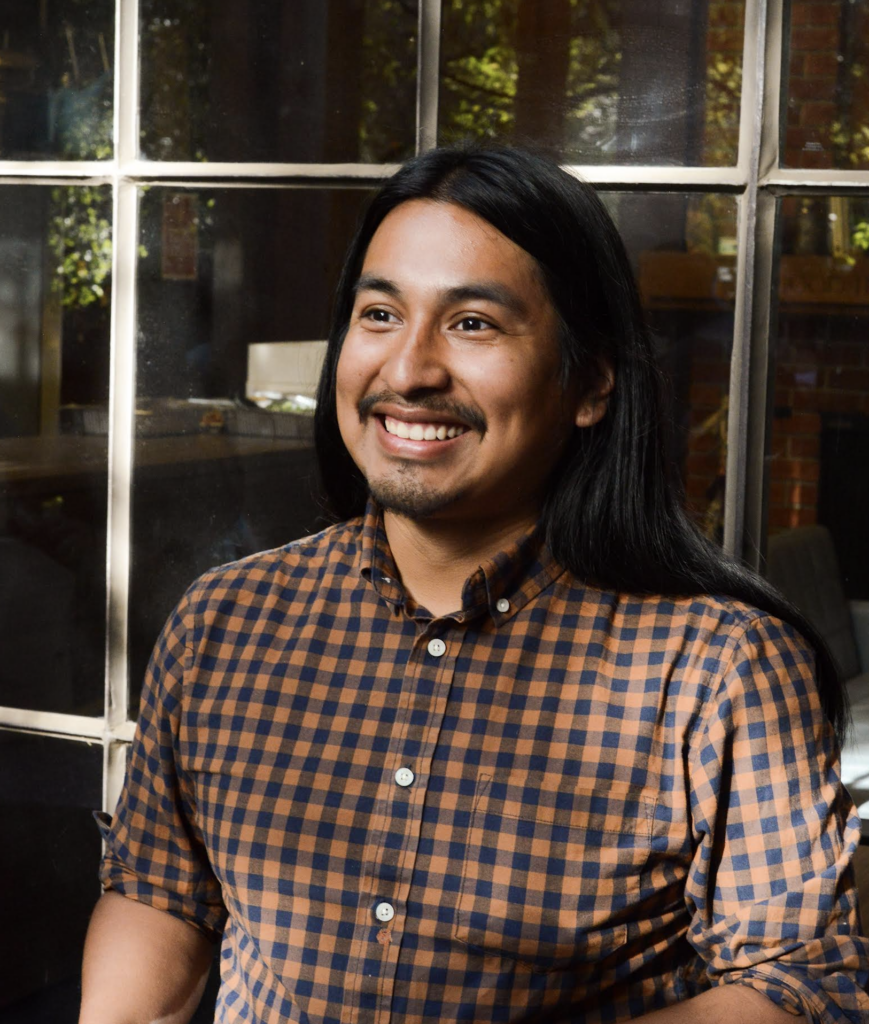
Jesús Nazario
Jesús Nazario/ Nahua, Alto Balsas (he/they) is a Nahua scholar from Northwest Houston, Texas with ancestral roots in a Nahua town in Guerrero, Mexico. Jesús received a Master’s of Arts in Latin American Studies from the University of Texas at Austin, and most recently a
Master’s of Arts in Ethnic Studies from UC Berkeley. Currently, Jehj is a Foreign Language and Area Studies (FLAS) Fellow, Office of Graduate Diversity Community and Diversity Fellow, and Graduate Student Fellow for the Berkeley Food Institute. As someone who learned their
Indigenous language, Nahuatl, later in life, they are passionate about all forms of Indigenous language revitalization and food/land justice across the Americas.
Research Statement:
Jesús is researching the various intersections of food and political Indigenous sovereignty, through a focus on Indigenous maize farming in Mexico. Their methods include ethnography, photography, semi-structured interviews, and archival research.
Instagram: @nazaix
Image Credit: Zoe Keeler
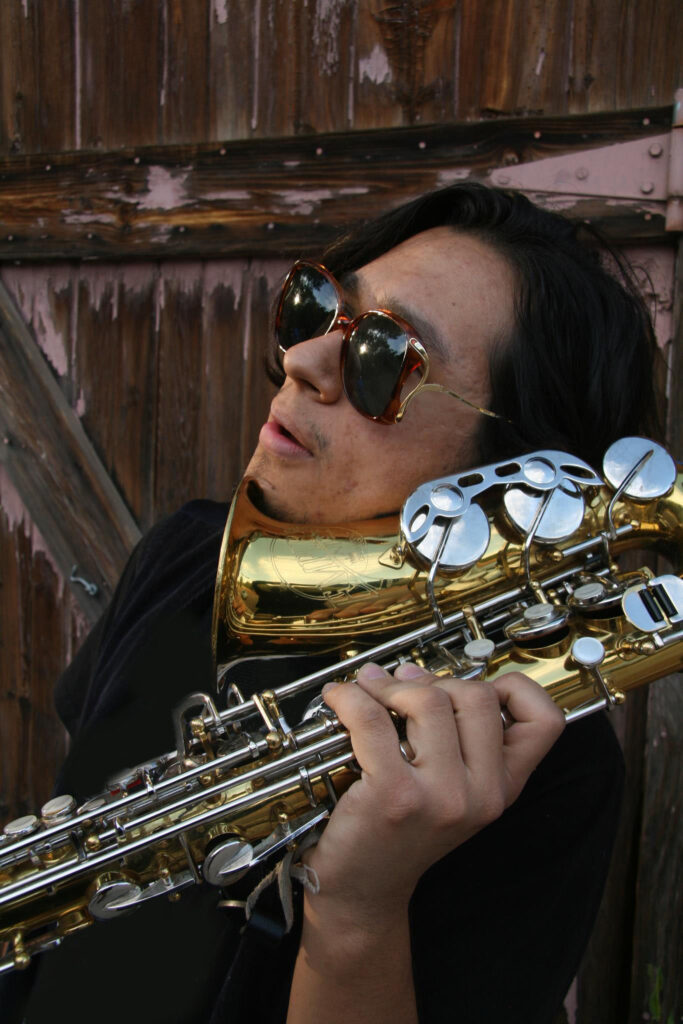
Everardo (Ever) Reyes
Everardo (Ever) Reyes (he / him & Rarámuri descent and Chicanx) is a Ph.D. candidate in Ethnomusicology. He is a multi-instrumental musician and songwriter who enjoys the possibilities that improvisation provides. His research focuses on the intersections between music, social movements, and Indigenous self-determination. Ever is also a co-creator of the Indigenous Sound Studies working group, which is supported by the Center of Race and Gender and the University of California Berkeley.
Research Statement:
Ever works on Rarámuri and Nahuatl language revitalization through music technology and songwriting with the Indigenous Language Revitalization Designed Emphasis at Cal.
Image Credit: Shannalia Reyes

Måsi Santos
Måsi Santos (she/her) is an Indigenous Pacific Islander (Chamoru) from the Mariana Islands in Micronesia, specifically Luta and Guåhan. She received a bachelor’s degree in English Literature and a master’s degree in English (Linguistics emphasis) from the Unibetsedåt Guåhan, and is a PhD student in the Berkeley Linguistics Department. As a speaker of her Indigenous language (Chamoru), she is a staunch advocate for reclamation and revitalization of Indigenous languages in her homelands and worldwide.
Research Statement:
Måsi Santos (she/her) focuses her research in Linguistics on the phonetics/phonology of her Indigenous language (Chamoru), as well as the application of language reclamation and revitalization through academic scholarship and creative expressions of language, e.g. poetry, prose, play-/screenwriting.
Instagram: @masmaolek
Image credit: Claudia Iron Hawk
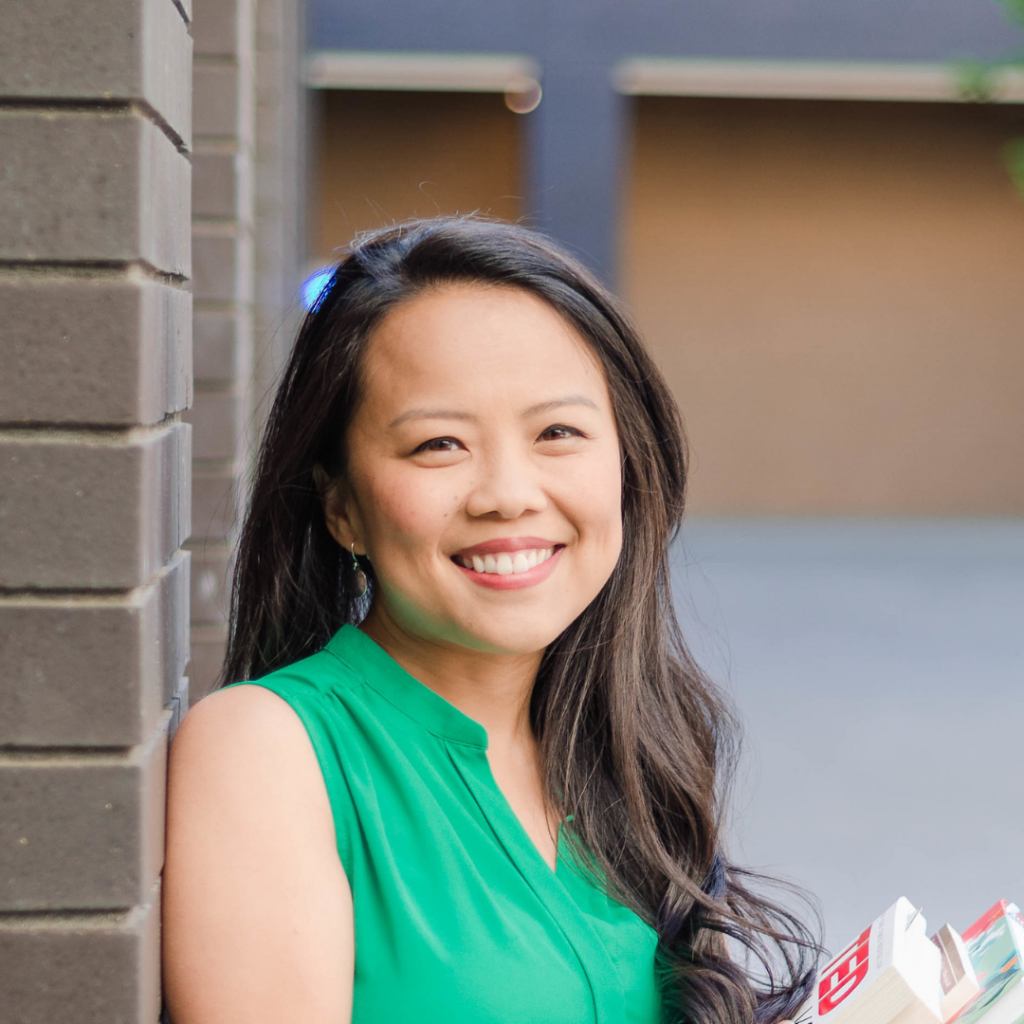
Pa Vue
Pa Vue (she / her / nws) works to reclaim Hmong language, culture, and knowledge. She writes to explore the connection between literacy, language, and creativity. Her writing draws from paj huam, a traditional Hmong spoken poetry, and Hmoob kev hu plig, Hmong soul calling practices.
Research statement:
Pa’s research examines the intersection of youth, technology, and Hmong language reclamation.
Website: bypavue.com
Instagram: @hmonglanguagemovement
Image courtesy of the fellow.
